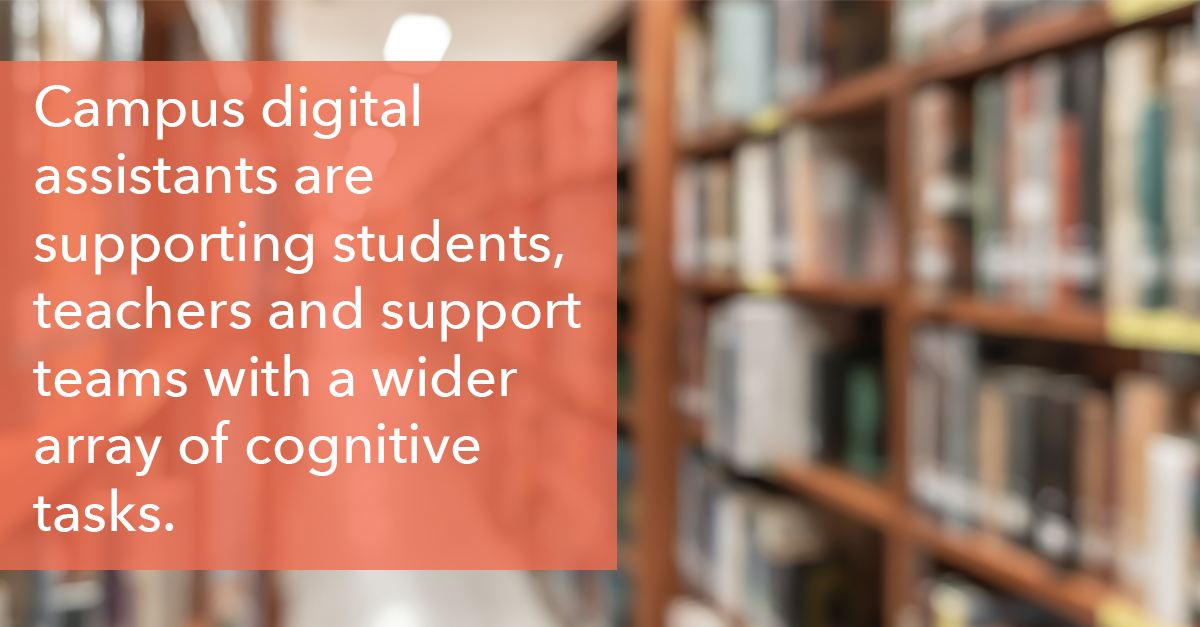Cognitive Tasks
As campus digital assistants evolve they will support students, teachers and campus support teams with a wide variety of cognitive tasks and activities. If campus digital assistants are seen as a distinct EdTech category or platform; they have the capacity to undertake an endless number of cognitive tasks on behalf of everyone in a school, college or university setting.
In many cases the technical solutions to support the expanding capabilities of campus digital assistants are already in place. We only have to look to tried and tested techniques; such as business or robotic process automation which enable contextualised information, advice and guidance to be presented to individuals around the campus. For example, the campus digital assistant can present timely nudges to individual students and teachers about forthcoming assignment hand-in dates, exam dates and times, work placement details, appointments or events around the campus; and campus digital assistants are able to respond contextually to on-demand enquiries from everyone at the institution and across the entire student-life-cycle. The ability to respond contextually in this fashion is welcomed; especially for routine day-to-day tasks that previously required alot of time and effort to complete.

If campus digital assistants are seen as an amalgam of discete services they can start to support students and teachers with tasks and activities that have a higher degree of complexity. For instance, when they utilise natural language generation they enable the automation of student report cards which are personalised and contextualised to each student on the campus. In a matter of seconds the campus digital assistant can curate and present a contextualised report card to every student.
Further still, when campus digital assistants make use of natural language classification or natural language understanding services they can start to support students and teachers with formative assessment tasks. A teacher can pose an open ended question, train the natural language classification model associated with the assessment activity and present it to his or her students. Students are able to respond to the question using free-form text; amending and adapting their answers as they receive real-time feedback from the campus digital assistant.
When campus digital assistants become commonplace in our schools, colleges and universities it will be hard to imagine life as a student or teacher without them. Their capacity to undertake multiple cognitive tasks enables us to have access to a greater store of memory and a greater sense of awareness; enabling students, teachers and support teams to make informed decisions about their studies and work.
